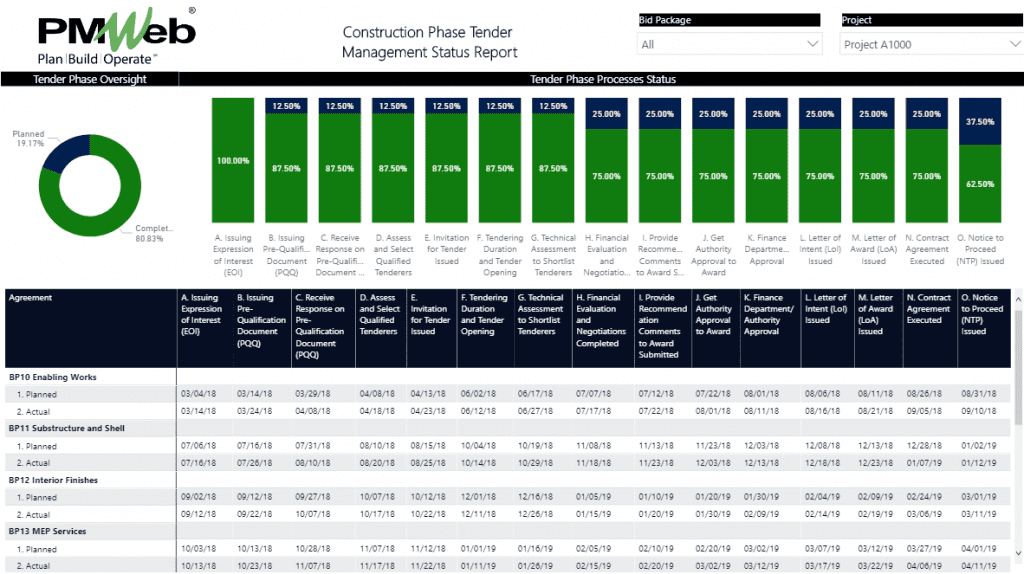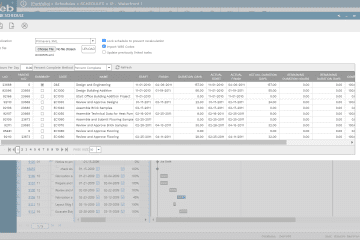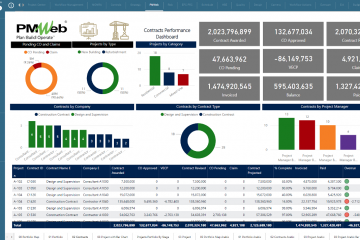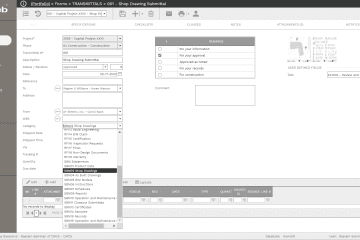The tender phase for construction contracts is one of the critical capital projects life cycle phases that needs to be managed by the project owner. The conclusion of this phase results in a major financial commitment on the part of the project owner being the awarded construction contract value, which usually represents 90% of the capital investment needed to build the assets. For projects where the procurement strategy is based on multiple bid packages, the tender related processes for procuring a contract are repeated for each bid package. In general, these processes usually include Issuing Expression of Interest (EOI), Issuing Pre-Qualification Document (PQQ), Receive Response on Pre-Qualification Document (PQQ), Assess and Select Qualified Tenderers, Invitation for Tender Issued, Tendering Duration and Tender Opening, Technical Assessment To Shortlist Tenderers, Financial Evaluation and Negotiations Completed, Provide Recommendation Comments to Award Submitted, Get Authority Approval to Award, Finance Department/Authority Approval, Letter of Intent (LoI) Issued, Letter of Award (LoA) Issued, Contract Agreement Executed and Notice to Proceed (NTP) Issued.
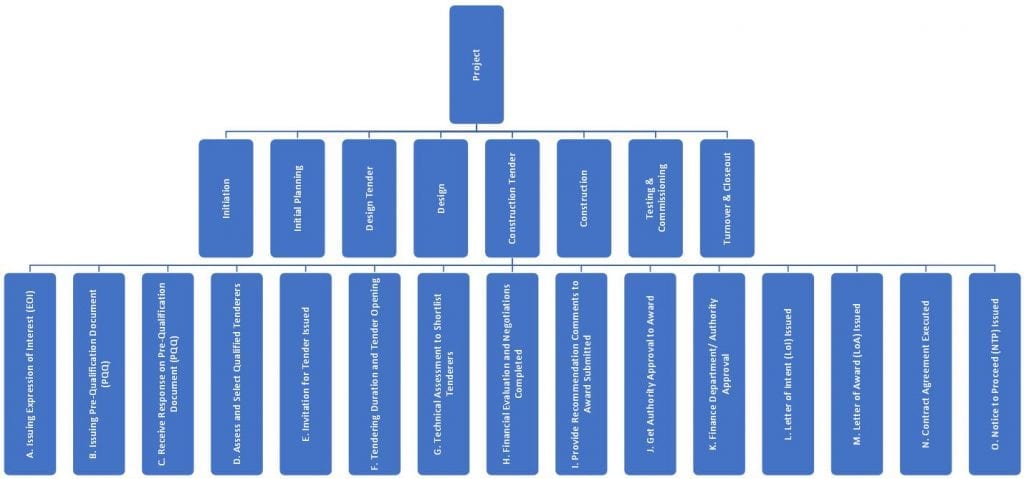
Using a Project Management Information System (PMIS) for capital construction projects like PMWeb, project owners can have a single web-enabled solution to manage all construction tender processes as well as to monitor, evaluate and report on the performance of the overall construction tender phase along with other project life cycle phases. This is achieved in two steps. The first is to digital transform the management of each tender phase either by using PMWeb default modules if available or creating the process using PMWeb custom form builder. The second requirement is to create or import the integrated project schedule using PMWeb scheduling module that will include the tasks for all tender phase processes and for each bid package to be awarded.
Digitally Transform the Tender Processes
PMWeb comes ready with many of the processes needed for the design and construction contracts tender phases. Those include the default modules for vendor prequalification, bid packaging, procurement, online bid modules, and pre-bid meetings. In addition, custom forms are used to create all other remaining processes like those for bid queries, internal approvals, recommendation to award (shown below as an example) among others. In addition, the PMWeb correspondence module is used to create the letter templates for Expression of Interest (EOI), Letter of Intent (LoI), Letter of Award (LoA), and Notice to Proceed (NTP). Each of these processes that are managed in PMWeb include a field for the project schedule task. The value for this field will be the relevant task included in the integrated project schedule. Access rights for the tender phase processes are aligned with the roles identified in the responsibility assignment matrix (RAM).
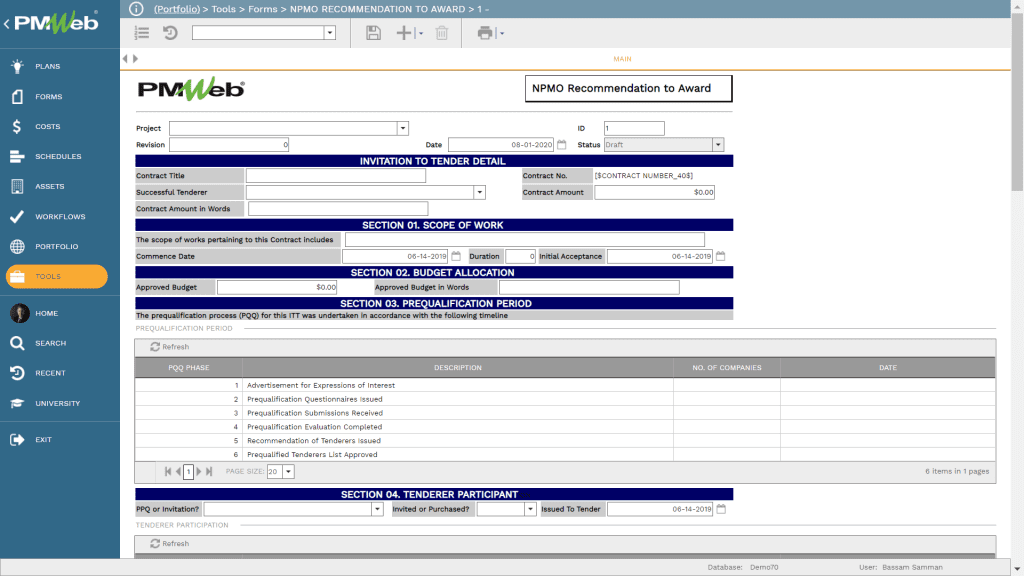
For each tender process managed in PMWeb, supportive documents can be either attached directly to the process or uploaded into PMWeb document management repository and then attached to the relevant tender process. The latter is the recommended approach. In addition, links to other PMWeb records as well as imported MS Outlook emails can be added to each process.
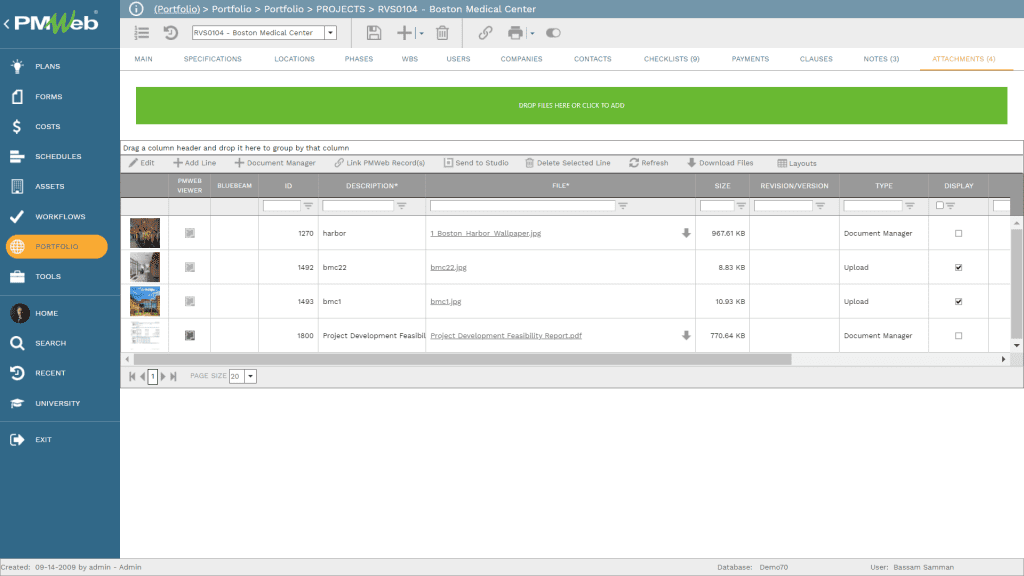
In addition, for tender processes that need to have a workflow to formalize the taken actions on the process, a workflow is assigned to map the submit, review, approve or reject steps. The workflow defines the duration and sequence of tasks to be performed by the different project team members as well as review actions permitted at each workflow step. The workflow could include conditions to ensure that the approval authority levels are adhered to. In addition, the workflow could define alerts level for delayed workflow steps. PMWeb also allows assigning ad-hoc workflow to enable collaboration on a selected process but without following a predefined sequence for performing the tasks.
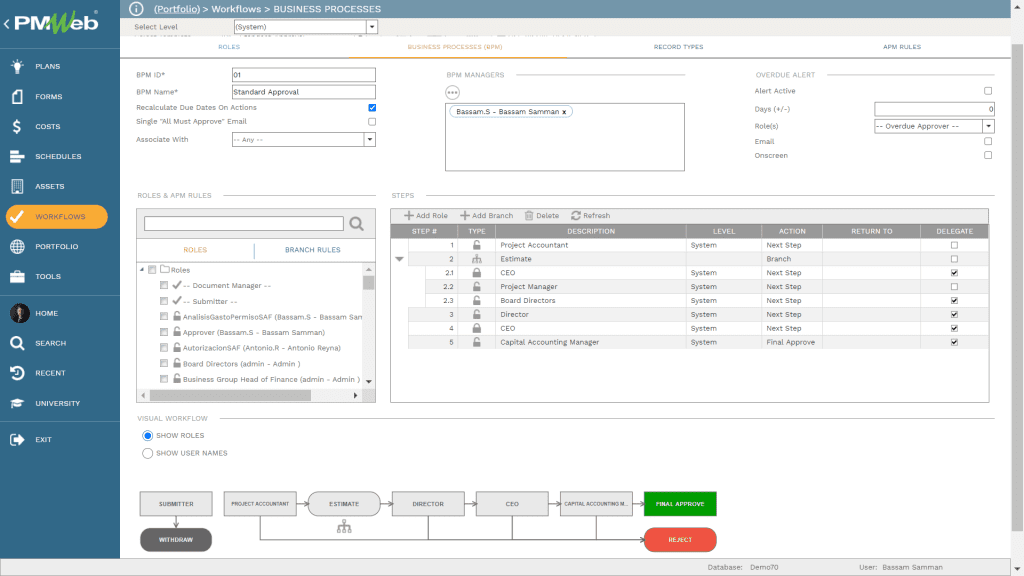
PMWeb default project center page can be configured specifically for each PMWeb user who has an involvement in the construction phase tender. The tender management processes can be selected to be displayed on the project center page to provide immediate access to completed, pending and new processes to commence.
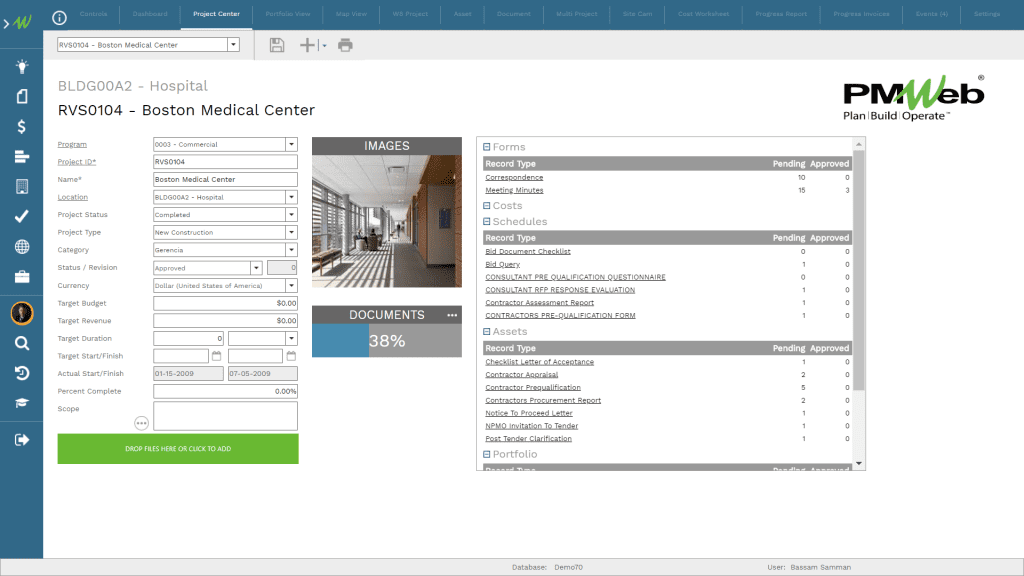
Tender Phase Schedule
To ensure that the construction tender processes for each bid package is completed within the allotted duration to avoid delaying the project’s completion date, each process is added as an activity in the integrated project schedule. The activity duration for each process indicates the planned duration for completing the required deliverables for the process. The relationship between the tender processes’ activities is based on the approach identified by the procurement team, although it is mainly the default relationship finish-to-start (FS). The successor activity for the last activity in the tender phase schedule, Notice to Proceed (NTP) Issued is the planned construction contract agreement duration as defined in the integrated project schedule. Of course, each bid package to be tendered has its own construction activity to be linked to the relevant Notice to Proceed (NTP) Issued activity. If the integrated project schedule was created in Oracle Primavera P6 or MS Project, this can be imported to PMWeb scheduling module where the tender processes dates and other related information is extracted from the imported schedule. PMWeb allows maintaining all versions of each project schedules including those for the baseline, revision and updates.
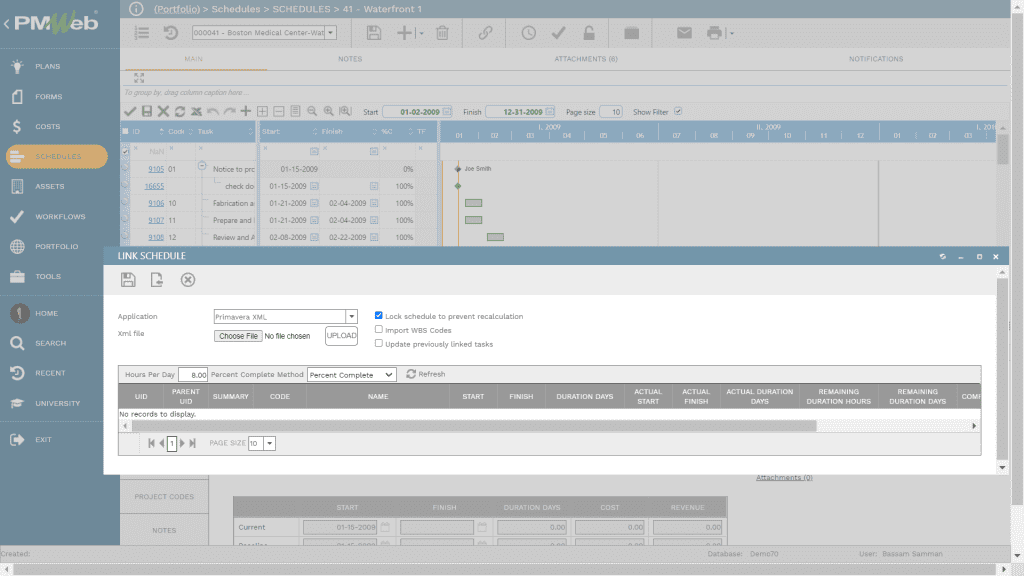
Monitoring, Evaluating and Reporting the Tender Phase Performance
The data captured in the updated project schedule that is imported into PMWeb becomes the basis for the tender management status report. The report displays the status of each tender process for each planned work package. The report also provides visuals to summary the overall performance of the tender phase. The report can be configured to allow drill-down to a detailed log that shows the tender management performance across every single bid package with hyperlinks to each tender process performed.
